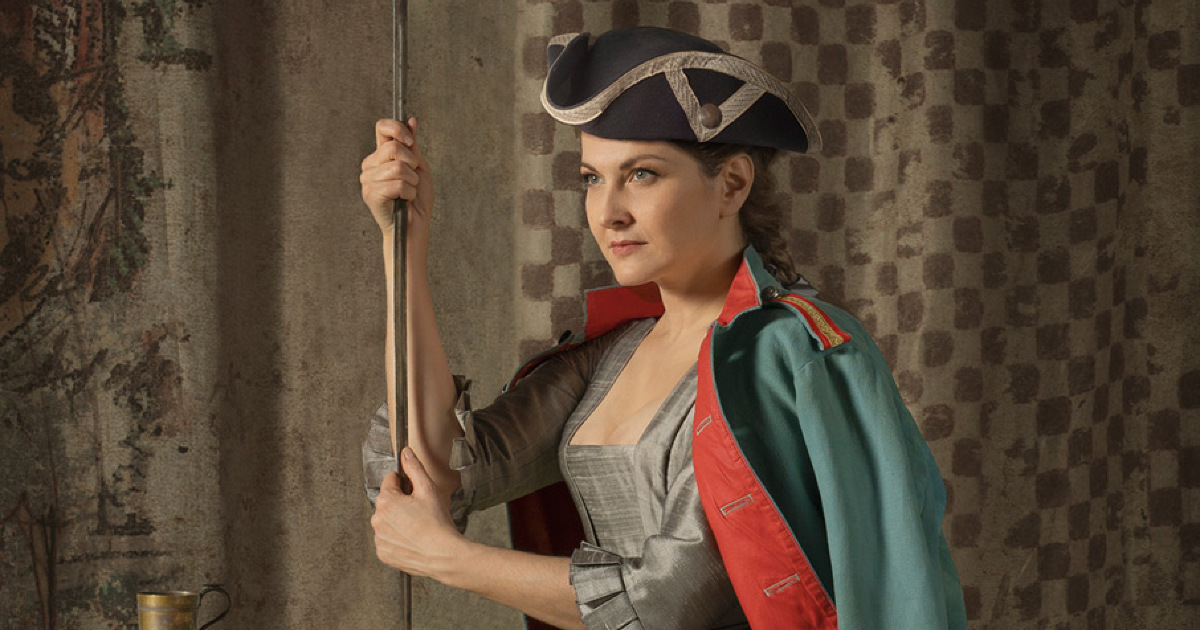
A Night at the Opera: Così Fan Tutte
I’ve just arrived home from the Gran Teatre del Liceu. Tonight I witnessed one of the most magical opera nights of my life. The play was Cosi Fan Tutte, the third collaboration between Wolfgang Amadeus Mozart and Lorenzo da Ponte. Let me tell you that I’m still in shock. The amount of joy, laughter, and overall positive feelings that I’ve experienced tonight was unprecedented. As per usual, I arrived 20 minutes before the start. I located my seats on the main floor, row 6, seat number 2. I couldn’t have chosen a better location. As it has been a running theme during the Mozart - da Ponte trilogy, instead of having the curtain down, the stage manager decided to leave them up. You can see the actors and actresses stretching, enjoying a casual conversation, and getting ready for the show. At 19h the performance began. A well-suited man promptly interrupted the action to make an announcement. Both sopranos portraying Fiordiligi and Dorabella had tested positive for COVID19. Also, the baritone who plays the role of Guglielmo suffered an injury and was left out of the cast. But the oddest announcement was that the role of Dorabella was to be played by Arianna Vendittelli in the vocal part and by Anna Ponces in the acting part. As you might guess, this was not going to be your usual night at the opera.
The action starts, and the music fills all the corners of the room. I knew some of the pieces I was going to enjoy. As always, live music never disappoints. We then reach the point when Don Alfonso tells Dorabella and Fiordiligi that their fiancés have been called to go to war. Fiordiligi faints. After your usual 5 seconds of opera drama, I started to wonder: why isn’t the actress standing up? And my suspicions that something was wrong were confirmed when the whole cast started shouting in their native languages: No! no!. My first instinct was that someone had screwed up. As if the actress didn’t have to faint or she was singing the wrong lines. Don Alfonso, portrayed by Alexandre Duhamel, interpellates the public and asks: Is there a doctor? At this point, you could see that something was off, as the levels of concern of the cast were not indicating real danger. He proceeds by saying: Oh I’ve got it! And goes to pick up a nostril swab, like the ones used in COVID tests, walks towards Iulia Maria Dan (the actress that portrays Fiordiligi), and shouts in Italian: A PCR TEST! The crowd cracks up laughing as he fakes the testing procedure, and the poor Fiordiligi wakes up. You could say that it was just a joke. But for me, it had a bit more depth. The whole approach to the trilogy has been based on the roots of the opera, on the street theater, the opera bufa. The kind of acting that you could enjoy on the streets, that made fun of the mundane. That is why the curtain was left open, for example. So, even if it was not intentional, I found it to be more clever than it seemed and perfectly blended with the approach that the Liceu took for the opera.
The rest of the opera developed marvelously. I truly fell in love with the voices of both sopranos: Arianna Vendittelli and Iulia Maria Dan. I laughed and felt joy with the fantastic interpretation of Despina by Miriam Albano. Concerning the male voices, I had seen Alexandre Duhamel as Don Giovani the week before. He has an incredible voice and a magnificent way to make you smile, even when you are not supposed to. Finally, the interpretation of the last two male characters: Ferrando and Guglielmo portrayed by James Ley and Florian Sempey was outstanding. You could say at some point that it was a group of friends on a night out at the karaoke.
The opera ended, and I still had a hunger for more. I can’t stress enough the positive emotions I felt with the interpretations of Arianna Vendittelli and Iulia Maria Dan. But the cherry on top had still to arrive. As the tradition goes, the conductor joins the cast for the final salute. All of a sudden, he stops the clapping to make an announcement. First of all, he congratulates the orchestra for an amazing performance. And then he congratulates both the sopranos for pulling off an amazing interpretation given that it was the first time they did the whole thing together. I was stonished. That cast, all together, with the orchestra, had never played the entire thing before? I mean, if this is not the works of some kind of bizarre magic, I don’t know what it is.
Finally, as the emotions wear off, I want to tackle the moral of the story. In this instance it could be summed up as: humans can’t be 100% faithful. And, by assuming that, we can not live trying to test our significant others because they will eventually fall into the temptation as Dorabell and Fiordiligi do. This conclusion has aged quite well. Nowadays, we see how toxic controlling relationships collapse with disastrous consequences. We could all take a page from Cosi Fan Tuttes’ libretto. I won’t elaborate much about this topic. I’m just pointing it out as something to think about and meditate on.
If you haven’t seen Così Fan Tutte, I highly recommend it. If you can’t, you can still grasp a bit of information by listening to La previa del Liceu. A podcast, both in Catalan and Spanish, that gives the audience the required background information to truly enjoy the play. Being usually considered the underdog of the trilogy, I had lower expectations. But, in my opinion, it deserves to be considered at the same level as its cousins: Le Nozze di Figaro and Don Giovani. I’m sure it won’t disappoint you.